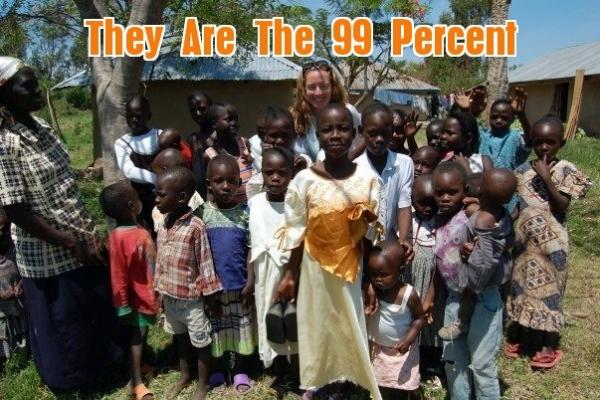Cannes, France is world-renowned for its glamour and opulence. Last week, this playground destination for the rich and famous was filled with politicians, media, and NGO representatives as the leaders of the world’s 20 largest economies gathered for the annual G20 Summit.
Leading into the Summit, the urgent issues of global food security and development were squarely on the agenda. Unfortunately, these pressing issues became an afterthought with the attention of G20 leaders being almost entirely consumed by the Greece and the Eurozone debt crisis.
Even the high-profile presentation by Bill Gates on the progress in health and agricultural development barely broke through the media and summit preoccupation with the proposed Greek referendum on austerity measures. This does not negate the fact that some progress was made by the G20 in the months leading up to the summit on addressing commodity price volatility and promoting agriculture.
Right now, in cities around the world, there is a growing protest movement putting the issue of economic inequality squarely on the public agenda. Regardless how you feel about this movement, I believe there is another "99 percent" we need the G20 – and urgently Congressional leaders – to remember and prioritize.
Nearly 8 million children under the age of five die every year due to preventable malnutrition and disease. But they are not dying in the United States, Germany or here in France.
According to research by World Vision’s Child Health Now campaign, 99 percent of those entirely preventable deaths take place in developing countries. The 99 percent of the children that die under the age of 5 are too often invisible and don't have a voice at major global summits such as the G20 or in the corridors of Congress. These children constitute the real and too often forgotten 99 percent. At the G20, my colleagues and I from World Vision worked to shine a spotlight on this other 99 percent.
G20 and G8 leaders have a history of letting their agendas be derailed by unexpected crises that emerge in the days leading up to a Summit.
Certainly the ambitious French G20 slogan that “History will be written in Cannes,” rings hollow in light of how little was actually achieved on their original agenda. Future global leaders, including 2012’s G20 host, Mexico, need to ensure that issues beyond immediate political crises are given their due.
While this G20 will likely be remembered by the world outside of Europe as a missed opportunity, urgent progress must be made toward a robust food security, nutrition and development agenda.
With their strong economic focus, the G20 must understand that progress on these issues will serve as critical catalysts of growth.
In the next few weeks, Congress will be debating whether to make devastating cuts to humanitarian and development assistance, the very programs that are providing emergency relief in crises like the famine in the Horn of Africa, and combating disease and hunger across the world. Much of the progress of the last 10 years around global AIDS, malaria and food security could be undone if these cuts go forward.
Fortunately, the Senate bill for state/foreign operations is $5 billion higher than the House bill. According to amfAR, a five percent cut to bilateral health funding would mean 189,000 orphans and vulnerable children would lose food, education and livelihood assistance and treatment funding for 182,000 people with HIV/AIDS would not be available, leading to 41,000 more HIV/AIDS related deaths.
Congress needs to hear from you, its constituents, that we Americans prioritize the welfare of the other 99 percent in the world.
Even in tough economic times, these cost-effective programs are critical to save lives and build a healthier, safer and more humane world.
Adam Russell Taylor is vice-president for advocacy and communications at World Vision.
Got something to say about what you're reading? We value your feedback!
